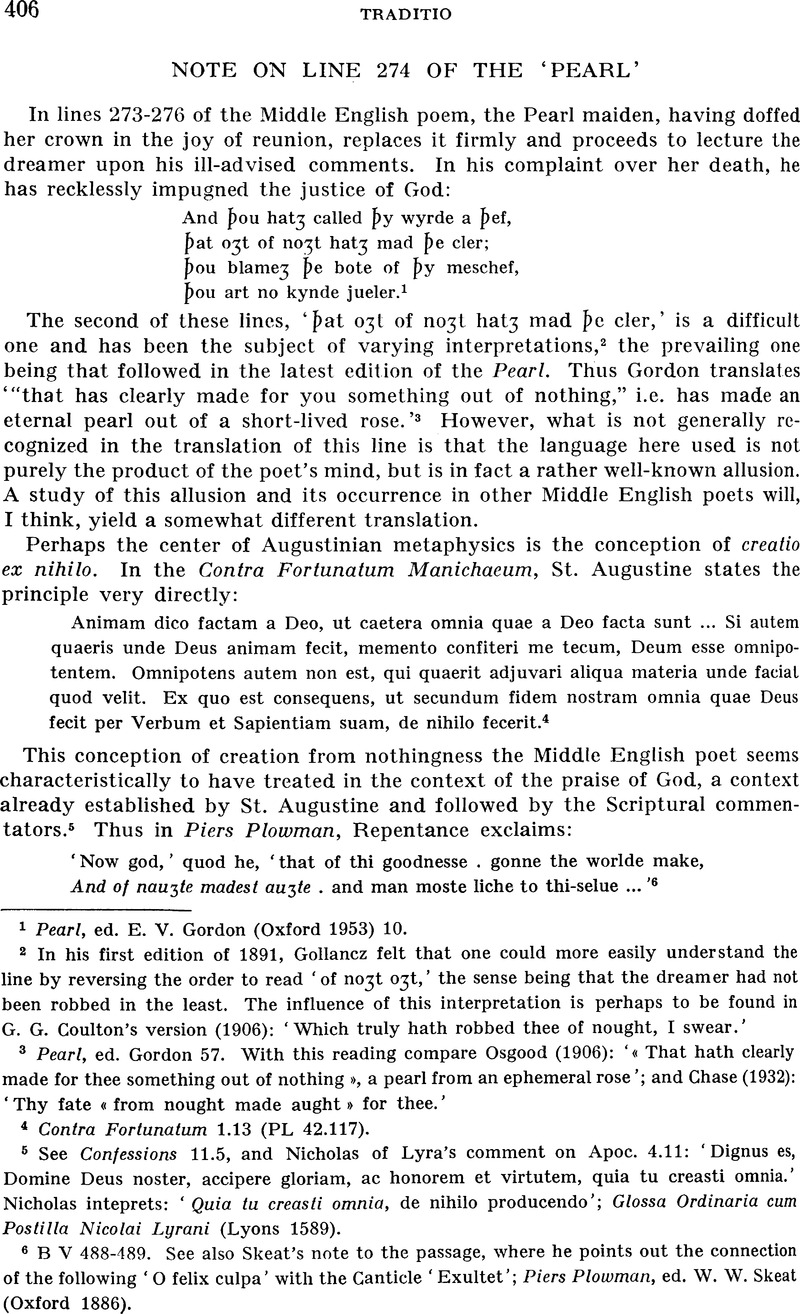No CrossRef data available.
Article contents
Note on Line 274 of the ‘Pearl’
Published online by Cambridge University Press: 29 July 2016
Abstract

- Type
- Miscellany
- Information
- Copyright
- Copyright © Fordham University Press
References
1 Pearl . ed. Gordon, E. V. (Oxford 1953) 10.Google Scholar
2 In his first edition of 1891, Gollancz felt that one could more easily understand the line by reversing the order to read ‘of noƷt oƷt,’ the sense being that the dreamer had not been robbed in the least. The influence of this interpretation is perhaps to be found in Coulton, G. G.'s version (1906): ‘Which truly hath robbed thee of nought, I swear.’Google Scholar
3 Pearl . ed. Gordon 57. With this reading compare Osgood (1906): ‘« That hath clearly made for thee something out of nothing », a pearl from an ephemeral rose and Chase (1932): ‘Thy fate « from nought made aught » for thee.’Google Scholar
4 Contra Fortunatum 1.13 (PL 42.117).Google Scholar
5 See Confessions 11.5, and Nicholas of Lyra's comment on Apoc. 4.11: ‘Dignus es, Domine Deus noster, accipere gloriam, ac honorem et virtutem, quia tu creasti omnia.’ Nicholas inteprets: ‘Quia tu creasti omnia, de nihilo producendo‘; Glossa Ordinaria cum Postilla Nicolai Lyrani (Lyons 1589). Google Scholar
6 B V 488–489. See also Skeat's note to the passage, where he points out the connection of the following ‘O felix culpa’ with the Canticle ‘Exultet’; Piers Plowman, ed. Skeat, W. W. (Oxford 1886).Google Scholar
7 Lines 24–25; Complete Works, ed. Robinson, F. N. (Boston 1933) 631.Google Scholar
8 Cf. Everyman 56–57: ‘They thanke me not for ye pleasure that I to them ment, / Nor yet for theyr beynge that I them haue lent.’ Google Scholar


